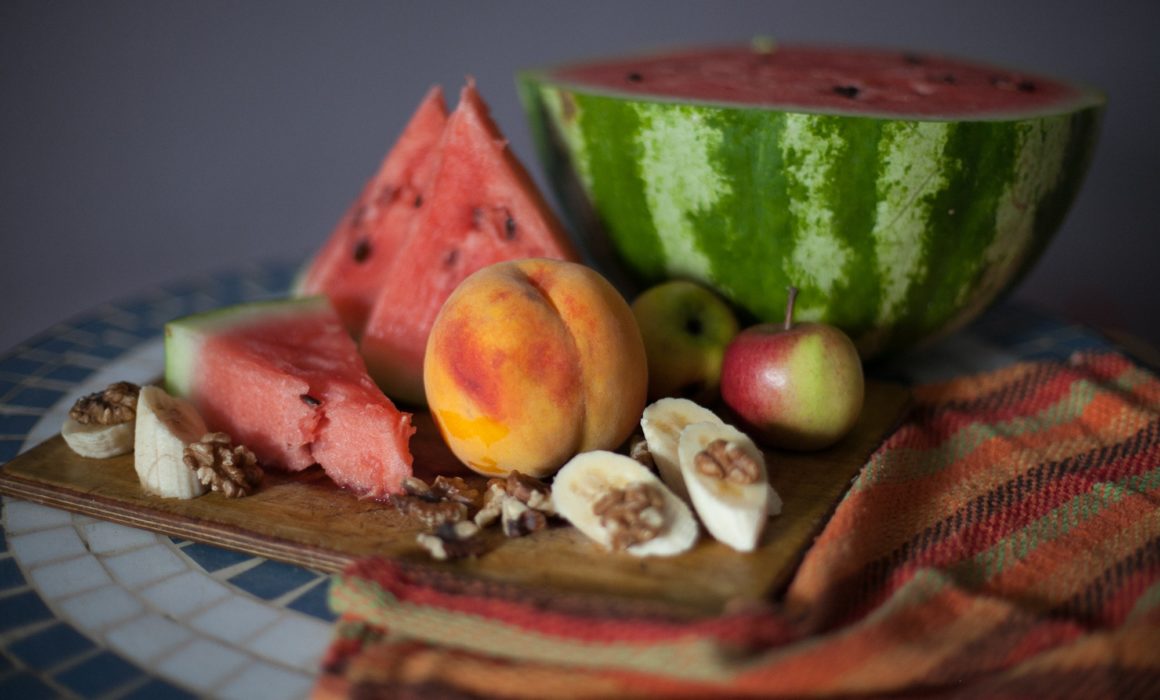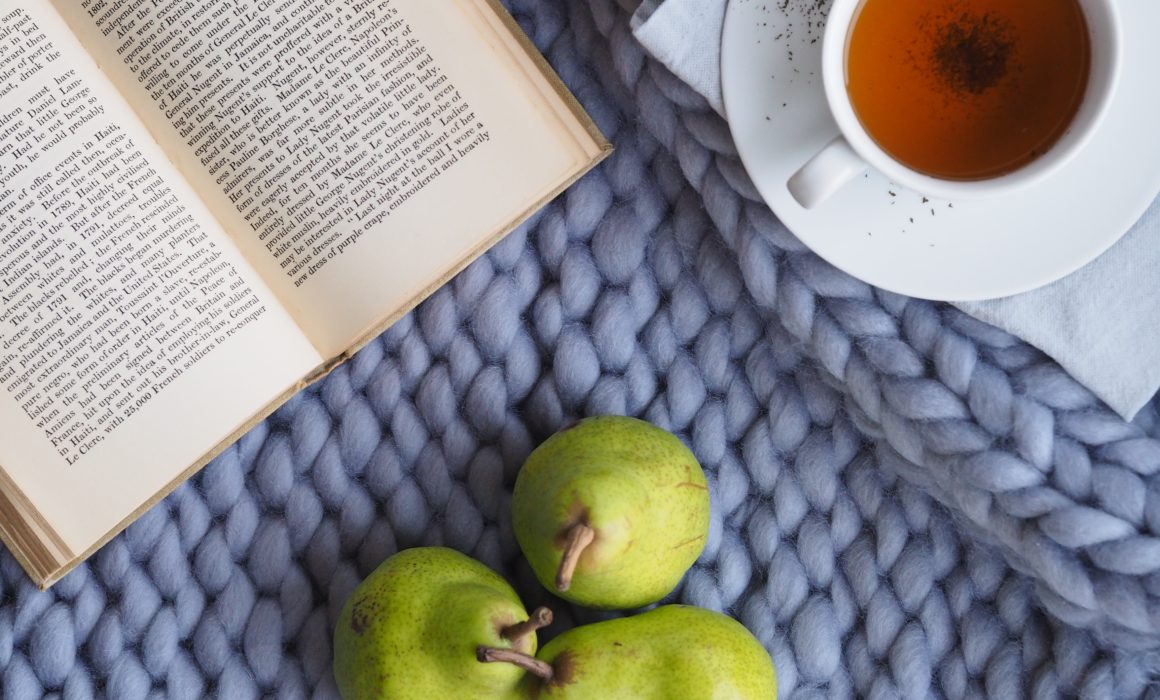It might be your mum, sister, girlfriend – or you. We show you how to reduce your risk, get the best treatment, and help others to cope.Read More
Effective weight loss depends on you burning more energy through exercise than you consume via food – right? Not necessarily.
Slim down before Christmas!
Real Food
Sustained Results
Long Term Wellness
Professional Advice and Support
Do you usually wait until January to start thinking about your health goals? Why not start today, before Christmas arrives, and join our 21 day fat loss challenge. The Shake It Practitioner Weight Management Program, combined with our qualified naturopath and nutritionist support, is one of the most effective weight loss programs available.
As each person is uniquely different, we believe it is best to seek qualified professional advice in order to gain long-term results. It is important that you follow a weight loss program that takes into account your current health picture, your lifestyle, and your dietary preferences, so that you can achieve your health and weight loss goals for the long term.
We will help you better understand the whole picture of weight loss and be empowered with the right information to assist you in making the right decisions, not only for your immediate future, but for the rest of your life!
The program focuses on real wholesome food, healthy lifestyle advice to optimise your exercise, sleep and stress management techniques, and includes recipes, shopping lists, meal plan suggestions, and tips to help you stay on track.
We are offering a 21 day challenge to get you started before the new year, to help you lose fat, increase your energy and vitality, balance your blood sugar levels, and provide you with practical education and tips on healthy eating and keeping the weight off.
Our 21 Day Challenge will include:
- An initial comprehensive Health Assessment Questionnaire and review of your 7-day diet diary: These will be sent to you to complete online before you come into the clinic.
- A 45 minute consultation with one of our practitioners. This comprehensive consultation will allow time to discuss your current health and diet and identify key areas, such as your thyroid, digestion or liver that may be affecting your weight loss efforts.
- During this session your practitioner will also run through the Shake It Weight Management Program and complete a comprehensive cellular health analysis using advanced bioelectrical impedance technology. This assessment generates a full health report for you to take home, including cellular function, hydration, muscle mass and quality, and fat mass.
- We will then review your progress at 2 x 30 minute follow up consultations to discuss what has been working well for you and where you might need some extra support. We will also repeat the comprehensive cellular health analysis to track your progress.
- The program will also include:
- A weight management supplementation starter kit (valued at $150) to maximise your dietary and exercise efforts during the 21 Day Challenge.
- The Shake It Recipe Book (valued at $30) with nutritious wholefood recipes to give you variety in your meal planning.
- Online shopping lists, goal setting tools and healthy lifestyle advice to help you create healthy long-term habits.
- Regular support emails with tips to keep you on track each week.
** Available until the end of 2018**
Health fund rebates apply with select funds (enquire within)
Could the bugs we carry in our body influence our mood, behaviour, and neurological health? It certainly seems so. Naturopath Tania Flack reports.Read More
We’ve known for some time that inflammation impacts brain health. Studies have shown that people with major inflammatory conditions such as autoimmune disease or infections, are significantly more likely to develop depression or suffer from cognitive decline. Patients with inflammatory bowel disease, for example, have a two-fold risk of anxiety and depression.
READ: How your gut microbiome affects your mental health
There’s even evidence that anti-inflammatory medicines can help in the treatment of depression. However, inflammation caused by leaky gut is a much more subtle process and we may not associate gut problems with brain health. The effects of inflammation on the brain are so profound it can change they way the neurons function and even cause certain areas of the brain to shrink over time.
Studies have found a region of the brain called the hippocampus, which is responsible for emotions, learning and memory, is smaller in people who have suffered long-term depression, and this loss of neurons is thought to due to inflammation.
Interestingly, this area returns to a normal size in people who have recovered from depression.
The foundations of a healthy gut and brain lie in a fibre-rich, wholefood diet, and long-term dietary change is needed to ensure a healthy microbiome is established and maintained. The bacteria in the gut act like a specialist workforce helping us break down food; the more diverse your diet, the more diverse your microbiome will be. Remember, we are not just feeding ourselves; we are also feeding our inner zoo.
Choose foods that are as close to their natural form as possible; if you can recognise it, then your bacteria will as well. Avoid processed and prepackaged foods, as these contain additives that will slow microbiome repair.
Organic food is ideal: going organic even for one month will make a big difference, as it will reduce your exposure to herbicides and pesticides that damage the microbiome.
A high vegetable intake will provide natural fibres to encourage bacterial growth and vitamins, minerals and antioxidants to promote gut health. Aim for between six to nine cups of vegetables per day.
Fermented foods such as kimchi and sauerkraut can be introduced in small amounts initially and increased over time to provide the gut with friendly bacteria.
Avoid unhealthy fats, such as processed seed oils, and stick to coconut, olive, and avocado oils. Lots of oily fish in the diet, such as salmon, sardines and mackerel will provide anti-inflammatory benefits.
Mineral-rich bone broth can be easily made at home and is an ideal food to promote a healthy gut.
Small amounts of whole grains should be used. Brown rice, corn or some of the seed-based alternatives like quinoa, buckwheat, millet and amaranth are good choices. Avoid all grains containing gluten.
It’s likely that future treatment of neurological conditions and mental health problems will involve improving nutrition to balance the microbiome, address leaky gut and reduce inflammation.
If you would like to improve your gut-brain health, many naturopaths, nutritionists and functional medicine doctors are specialising in this area and microbiome testing is now easy to access in Australia. Book an appointment with one of our practitioners at Bondi Health and Wellness today.
Prebiotic foods
These help to provide the microbiome with beneficial fibres to ensure healthy gut diversity. If you have a sensitive gut, introduce prebiotic foods to the diet slowly.
Vegetables: Jerusalem artichoke, garlic, onion, leek, shallots, spring onion, asparagus, beetroot, fennel, green peas, snow peas, sweet corn, Savoy cabbage
Fruit: Lady finger bananas, custard apples, nectarines, white peaches, persimmons, tamarillo, watermelon, rambutan, grapefruit, pomegranate
Legumes: Chickpeas, lentils, red kidney beans
Nuts: Almonds, cashews, pistachios
Your skin is like a public broadcast service that provides you, and everyone who sees you, with a window into your inner health.
What you eat, how healthy you are, and how well (or badly) you are ageing is written across your face for all to see. Mostly, people are interested in how their skin looks, but perhaps what we should be asking is, what is our skin trying to tell us?
Your skin is your largest organ and it plays a vital role in health. It forms a protective barrier between you and the outside world, and plays an important role in protecting you from pathogens. It is also responsible for helping you regulate temperature, protect against fluid loss, and synthesise vitamin D. It has a complex, multi-layer structure, with the cells of the epidermis (outer layer of skin) being continually being replaced, every two to three weeks. And although you might not like to think about it, your skin is home to approximately 1,000 different species of bacteria; this diverse microbial landscape also plays an important role in skin health.
So how can you achieve glowing, clear, healthy skin? The key lies in nourishing your inner health and providing all the nutrients skin needs to thrive.
Acne breakouts
Skin breakouts affect nearly everyone at some stage of their lives, and it’s not just teenagers who are affected. Studies show that, in Western populations, acne affects approximately 79 to 95 percent of adolescents, 40 to 54 percent of people over 25 years, and 12 percent of women and three percent of men by middle age. For some, acne can lead to many years of embarrassment, discomfort, and scarring, and can have devastating effects on self-confidence.
What causes acne and why does it persist beyond puberty in some people? Acne vulgaris causes deep, slow to resolve, scarring acne. Its development involves several processes, including hyperkeratinisation and blockage of sebaceous follicles in the skin; androgen-stimulated production of sebum; and finally, the sebaceous follicle becomes colonised by a bacteria called Proprionibacterium acnes which causes inflammation. The hyperkeratinisation and excessive sebum production are thought to have several contributing factors, including: a high glycaemic index diet, high insulin levels, excess androgen (male) hormones, poor elimination of toxins via the liver and bowels, psychological stress, and a low dietary intake of vegetables, fruits and fresh fish or seafood.
Of all of these risk factors, high insulin levels (hyperinsulinemia), seems to be the key trigger, as it drives both hyperkeratinisation and androgen-stimulated sebum production. While genetics may predispose some individuals to be more sensitive than others, dietary intake of high glycaemic index foods is the primary cause of hyperinsulinemia. One randomised controlled trial, investigating the effects of a low-glycaemic index diet on 43 male subjects with acne, found that after 12 weeks subjects on a low glycaemic index diet had significant reductions in acne, greatly improved insulin sensitivity, and improved body composition. Unfortunately, the standard Australian diet is high in sugar, processed foods and refined carbohydrates, all of which drive this process. So the first rule of acne recovery is to strictly avoid sugar in all its forms and processed carbohydrates in the diet.
The second rule may not be as obvious. Dairy has long been associated with skin problems and acne, and one of the fastest ways to improve acne is to remove dairy from the diet. But why? Researchers have been investigating the link between dairy and acne for some time now, and all have found a link. An Italian study in 2012 involving 563 participants found that the risk of acne increased with milk consumption. Another study of 88 Malaysian women found that those who consumed either milk (of any kind) or ice cream one or more times a week were four times more likely to have acne.
Interestingly, some research indicates that skim or low fat milk is even worse for acne than full fat dairy products. One retrospective study, involving 47,355 women, found that acne was strongly associated with dairy consumption, and those who reported drinking two glasses of skim milk a day had a 44 percent increased risk of acne. The explanation for this difference is thought to be due to the effect that dairy, especially low fat dairy, has on insulin. Earlier studies showed that low fat dairy causes a disproportionate increase in insulin levels despite having a relatively low glycaemic index – three to six times higher in fact than would normally be expected. While not many adults in Australia would drink two glasses of skim milk per day, many would consume two skim lattes per day, so there’s food for thought!
Exercise is essential for those suffering from acne, as not only does it deliver oxygen to the skin and encourage lymphatic drainage of waste, it also helps to improve insulin sensitivity. Bowel health must also be addressed when treating acne. A diet full of sugar and processed carbohydrates causes significant imbalance in gut bacteria (dysbiosis). Dysbiosis compromises healthy digestive function and promotes low-grade inflammation, hyperpermeability of the gut membranes, and a process called entero-hepatic recycling of toxins, where microscopic particles of toxins are leached across the gut wall back out into the circulation. This places greater pressure on the body’s other organs of elimination, including the skin, and significantly compromises healthy hormone metabolism.
Top tips for preventing acne …
*Avoid all sugar in all forms
*Avoid processed and refined carbohydrates, such as bread, pasta, baked goods
*Avoid all dairy
*Increase your intake of vegetables, fish, high fibre wholegrains and legumes, nuts and seeds, plus lots of water, fermented foods and minimal fruit
*Supplement with zinc, vitamin C, bioflavonoids, lipoic acid, broad spectrum probiotics, prebiotics
*Cardiovascular exercise, 3 to 4 times a week
*Stress management
Accelerated ageing
How you are ageing is literally written on our face. Tell-tale signs, such as fine lines and wrinkles, sun damage, age spots and changes in skin texture and tone, are all a natural part of the ageing process. But how rapidly you age can be influenced by your diet and lifestyle. Many different factors contribute to skin ageing, including sun damage, oxidative stress and inflammation – sugar is again a major culprit.
Supple, youthful skin relies on collagen and elastin, connective tissue proteins that support the skin and give it its structure. Normally, these proteins are linked to each other in such a way that if they get damaged, they can be repaired. However high circulating levels of glucose (from a high sugar diet) can bind to these proteins in a process called glycation, which causes cross-linking between collagen and elastin fibres so that they can no longer be repaired. High levels of sugar and processed carbohydrates in the diet damage collagen and accelerate ageing.
The glycation process not only occurs within the body in response to a high sugar diet; it also occurs in some commonly consumed protein- and fat-containing foods when they are cooked. Frying, toasting or roasting foods like red meat, dairy and grains damages their proteins, which creates highly oxidative advanced glycation end products (AGEs). For example, fried chicken has more than six times the AGEs than boiled chicken. When these AGEs are eaten they are absorbed into the body, and cause oxidative stress that can accelerate ageing.
We are exposed to chemicals, pesticides, plastics and other toxins on a daily basis, which can trigger subtle low-grade inflammation and oxidative stress, so limit exposure wherever you can by buying organic or thoroughly washing all your fruit and vegetables, minimising your exposure to household chemicals and avoiding occupational exposure where possible. Sun exposure is important to help you synthesise vitamin D, regulate your circadian rhythms and support healthy mood; however, too much UV exposure causes oxidative damage and accelerates ageing. I suggest always covering up with a hat and sunglasses to protect the more delicate skin of the face, and limiting exposure when sun is at its strongest in the middle of the day. An antioxidant-rich diet will help to slow the ageing process by neutralising free radicals and protecting against oxidative damage.
Top tips to slow skin ageing …
*Avoid sugar in all forms
*Avoid all roasted, fried and toasted foods; enjoy lightly steamed foods instead
*Go organic if you can, or thoroughly wash fruit and vegetables if you can’t
*Eat a high amount of varied plant foods
*Enjoy oily fish, such as salmon, tuna, mackerel and sardines, to increase healthy fats
*Eat an antioxidant-rich diet
*Supplement with omega 3 essential fatty acids, zinc, selenium, vitamin C, lycopene, resveratrol, beta carotene, lipoic acid
Pigmentation
Melasma is the most common type of hyperpigmentation, and usually affects women of reproductive age. It is due to overproduction of melanin by the pigment-producing cells in the skin, which causes patches of dark pigmentation, typically across the forehead, cheeks, chin and bridge of the nose. It often affects women of Asian, Indian, Mediterranean or Hispanic background who have a naturally darker skin tone.
Melasma pigmentation can be quite pronounced and research has found that due to its chronic nature it can significantly impact quality of life, causing distress and loss of confidence. This is a frustrating condition as there are no guaranteed effective treatments, although certain types of laser therapy may succeed in lightening pigmented skin and new research using natural medicines may offer a piece of the solution for this complex condition.
The causes of melasma are poorly understood. More than 125 genes are known to be involved in the regulation of pigmentation, and it is thought that a combination of hormones and UV light exposure trigger the condition in genetically susceptible women. Sometimes called ‘the mask of pregnancy’, melasma often strikes for the first time during pregnancy when women are expecting to have radiant, healthy skin. It is also triggered by oral contraceptive use. This interaction between the reproductive hormones and melanocytes is complex and more research needs to be done.
Addressing hormone metabolism is an important part of a natural medicine supportive protocol. Herbs and nutrients – such as broccoli sprout extract (indole-3-carbinol), di-indolmethane, rosemary, turmeric, selenium, St Mary’s thistle, zinc, B-group vitamins, and flaxseed lignans – all help to promote healthy hormone metabolism. A wholefood, high fibre diet is important, as is avoiding chemicals, pesticides, and plastics that interfere with the endocrine system. Women usually elect to avoid oral contraceptives, as these worsen melasma. As skin – especially the face – is constantly being exposed to UV light, in genetically predisposed women this causes oxidative stress, which triggers inflammation and a range of cellular changes that impact melanocytes, the pigment producing cells in the skin. Avoidance of UV light and diligent use of sunscreen is an important part of managing the condition.
Several studies using a powerful herbal antioxidant derived from French Maritime pine have reported success in reducing pigmentation in women with melasma. In one Chinese study, the extract was given to 30 women with melasma for one month and a reduction in pigmentation of approximately 80 was reported. This led to a larger, double blind, placebo-controlled study, which again found significant improvement in pigmentation after only 30 days. More recently, a larger randomised, double blind, placebo-controlled trial investigated the effect of the extract in combination with vitamins A, C and E on melasma pigmentation in 60 Filipino women. Again the results were positive and significant reduction in pigmentation was reported. Maritime pine is available in Australia and may be used in combination with other herbal medicines to support women with melasma. It must be prescribed by a qualified naturopath or herbalist.
Top tips to reduce pigmentation
*Avoid sun exposure to affected areas
*Always use a good quality, high SPF sunscreen
*Eat an antioxidant-rich diet
*Take care of your hormone health, and avoid oral contraceptive use
*Avoid exposure to endocrine-disrupting chemicals, pesticides and plastics
*See your naturopath or herbalist to discuss the use of Maritime pine extract
This article first appeared in Nature & Health magazine.
Download the article
Research shows fasting can change our biochemistry, reduce inflammation, protect metabolic, cardiovascular and neurological health, assist in managing autoimmune diseases, mental health, neurodegenerative diseases and digestive health, while significantly enhancing longevity.
But which type of fasting is the best?
Fasting is perhaps one of the oldest techniques used to promote health, and could even be considered the original ‘biohack’. Could it work for you? Naturopath Tania Flack reports.Read More
It’s what we do from our forties onwards that protects our bones and ensures they remain strong into our seventies and beyond, writes Tania Flack.Read More








